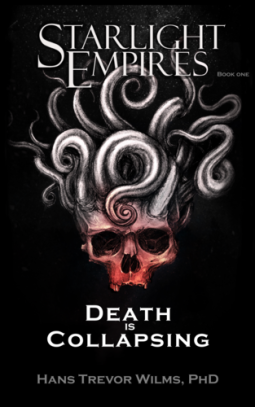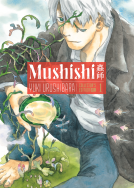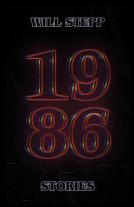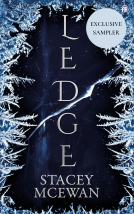
Death is Collapsing
Starlight Empires
by Hans Wilms
This title was previously available on NetGalley and is now archived.
Send NetGalley books directly to your Kindle or Kindle app
1
To read on a Kindle or Kindle app, please add kindle@netgalley.com as an approved email address to receive files in your Amazon account. Click here for step-by-step instructions.
2
Also find your Kindle email address within your Amazon account, and enter it here.
Pub Date 3 Oct 2024 | Archive Date 13 Jan 2025
Talking about this book? Use #DeathIsCollapsing #NetGalley. More hashtag tips!
Description
The universe is not what it seems. And one mortal is about to find out why.
The universe was supposed to be infinite. But when humanity set out to the great beyond, they encountered a boundary: the Edge of the Reachable Universe. And in the vastness of the cosmos, one tiny human is about to find out why.
Starlight Empires: Death is Collapsing starts the reader on a journey of nihilistic optimism. At its heart is Simon, just a short maintenance engineer stationed on a remote outpost orbiting a nondescript asteroid, grappling with isolation and a crumbling relationship back on Earth. Just as the corporate conglomerate named the CEC announces first contact with an alien species, a malfunctioning AI delivers Simon a cryptic message—“NOT WHAT THEY SEEM”.
Eager to reconnect with his old life, Simon embarks on a journey home. But upon waking, his life is turned upside down when he wakes up to a universe that has moved on without him. As he struggles to adjust to this new reality, where the line between human and AI is not as clear as it once seemed and alien technology is indistinguishable from magic itself, he finds himself questioning whether he can ever truly belong again. And when he finds himself tangled in the plans of a tired God, he just may have to make a deal with Death itself to survive this strange new world.
Available Editions
| EDITION | Ebook |
| ISBN | 9798340976338 |
| PRICE | US$3.99 (USD) |
| PAGES | 334 |
Available on NetGalley
Average rating from 11 members
Featured Reviews
 Clark B, Reviewer
Clark B, Reviewer
I really enjoyed the concept of the book - the aliens, the society, and the story. The main character Simon, can easily describe anyone who's felt like a cog in the machine, with no real joy in life, and throughout the book he struggles to find where he fits in. Set in the future, one can easily see how society could end up exactly as described in the book.
 JESSE S, Reviewer
JESSE S, Reviewer
Great book for fans of sci-fi fantasy! Death is Collapsing is set in the future, in a time where the people of Earth have begun their expansion into space and the surrounding galaxy. Early in the book (prologue), we find out that the human race has finally made contact with an alien race. While the world is filled with excitement, we start to wonder whether or not this is a good thing.
This book did a good job setting the scene and catching the reader up on how the human race got to this point of space exploration and alien contact. The main character is one that I ended up loving and also hating. He has both admirable and annoying qualities that kept me entertained. The plotline pace was medium - I was never bored, but it also wasn't so fast that I felt like I needed to reread passages to keep up with events. There were a handful (10 or so) spelling or grammar errors in the book that jarred me out of the storyline, but I would definitely read the next installment in this series.
 Reviewer 774437
Reviewer 774437
Book Review: Starlight Empires: Death is Collapsing by Hans Wilms
Hans Wilms’ Starlight Empires: Death is Collapsing delivers an intriguing blend of hard science fiction and existential fantasy, creating a cosmic epic that challenges the reader's perception of reality, humanity, and mortality. The first book in what promises to be a thought-provoking series, this debut is packed with rich philosophical undertones, a unique narrative voice, and a story that lingers long after the last page.
The Premise: A Universe with Limits
The premise of Death is Collapsing is captivating from the outset. Humanity’s exploration of the stars, thwarted by the discovery of the Edge of the Reachable Universe, introduces an immediate mystery that sets the stage for larger existential questions. Wilms combines this cosmic boundary with a deeply personal story about Simon, a maintenance engineer whose ordinary existence becomes extraordinary when he becomes the unwitting recipient of a cryptic message: "NOT WHAT THEY SEEM."
This single phrase acts as the narrative’s fulcrum, foreshadowing twists, existential revelations, and a journey that delves into questions of identity, belonging, and the nature of the universe itself.
Simon: An Unlikely Hero
Simon’s perspective grounds the story in a relatable, human experience. Far from being the archetypal hero, he is a flawed, lonely, and introspective character grappling with personal loss and professional monotony. His background as a maintenance engineer provides a refreshing departure from the usual action-packed protagonists of space operas.
Wilms crafts Simon’s arc with care, letting his growth unfold organically as he is thrust into the chaos of a universe in upheaval. His initial goal of reconnecting with his crumbling life on Earth is both heartbreakingly human and tragically futile, as time dilation and technological advancements leave him stranded in a reality that has evolved without him.
Simon’s struggle to adapt—to new AI constructs, alien technologies, and even the whispers of a tired God—makes him a compelling lens through which readers can explore the narrative’s philosophical depths.
A Universe of Infinite Mysteries
The world-building in Death is Collapsing is one of its greatest strengths. Wilms constructs a richly textured universe where humanity’s corporate-driven expansion collides with the mysteries of alien civilizations and the metaphysical forces governing existence.
The Edge of the Reachable Universe is not just a boundary but a metaphor for the limits of human understanding. The alien technology that Simon encounters—indistinguishable from magic—is a testament to Arthur C. Clarke’s famous adage. Wilms uses these elements to weave a tapestry that is as much about humanity’s hubris as it is about its resilience.
Themes: Nihilistic Optimism and the Human Condition
Wilms threads the narrative with themes of nihilistic optimism—a seeming paradox that gives the story its emotional resonance. The collapsing boundaries of reality, the enigmatic message from a malfunctioning AI, and Simon’s encounters with Death itself all point toward an existential crisis. Yet the story refuses to surrender to despair.
Instead, Death is Collapsing argues for the enduring power of human curiosity and the connections we form with others, even in the face of a seemingly indifferent universe. The idea that life’s meaning is not preordained but created through individual choices and experiences permeates the narrative.
The tired God and Death as a character further emphasize the novel’s exploration of metaphysical questions. These figures are not omnipotent but weary entities bound by the same constraints they once helped create. Simon’s interactions with them blur the line between mortal and divine, raising questions about the nature of free will, destiny, and the costs of survival.
Pacing and Structure
Wilms balances introspection with moments of high tension and action, creating a story that is both thought-provoking and engaging. The pacing is deliberate, particularly in the early chapters, as Simon’s solitary existence and isolation are carefully established. This slower start pays off as the narrative builds toward its revelations, allowing readers to fully immerse themselves in Simon’s journey.
The writing style is evocative and poetic, especially in scenes describing the Edge of the Reachable Universe and the alien landscapes Simon traverses. Wilms excels at juxtaposing the vastness of space with the intimate thoughts of his protagonist, creating a sense of awe and melancholy that permeates the novel.
A Few Quibbles
While Death is Collapsing is an impressive debut, it is not without its minor flaws. Some readers may find the philosophical tangents and slower pacing in the early sections challenging. Additionally, certain secondary characters, particularly those tied to the corporate entities driving humanity’s expansion, feel underdeveloped compared to the richness of Simon’s arc and the metaphysical elements.
However, these issues are overshadowed by the novel’s strengths, particularly its thematic ambition and narrative depth.
Final Thoughts
Starlight Empires: Death is Collapsing is a bold and thought-provoking entry into the sci-fi genre. Hans Wilms combines philosophical inquiry with vivid world-building and a deeply human story, creating a narrative that resonates on multiple levels. Simon’s journey is both a personal odyssey and a reflection of humanity’s place in the cosmos, making this book a must-read for fans of speculative fiction that challenges the mind and touches the heart.
Whether you’re drawn to the mysteries of the universe, the exploration of identity and belonging, or the existential struggles of flawed yet determined characters, Death is Collapsing offers something truly special. It’s an impressive start to the Starlight Empires series, and readers will undoubtedly be eager to see where Wilms takes this story next.
Rating: 4.5/5
Highly recommended for fans of speculative fiction with a philosophical twist, such as works by Liu Cixin, Ursula K. Le Guin, or Stanislaw Lem.
*Received an ARC via NetGalley in return for an honest review*
Provoking, dripping in irony, and downright thrilling, DEATH IS COLLPASING is the perfect debut novel for fans of SCI-FI and societal commentary.
Death Is Collapsing is fast paced, and leaves you unable to put it down, despite a healthy page count. Every character has a unique authenticity and are impossible to confuse even during the thrilling action scenes. This first novel is the perfect introduction to a world, nay galaxy, where AI has taken the positions of everyone in society, and a haunting new species rules the roost in stead of their faceless gods.
I devoured Death Is Collapsing and cannot wait for the next instalment in the series. Simon is a funny, empathetic protagonist who is thrust into a time where the Earth is long-since destroyed and everything he knew lost. But that doesn't let it stop him from demanding answers about how everything turned inside out.
Amazing, amazing, amazing. Everyone should be reading this book.
Death is Collapsing by Hans Wilms is a cosmic odyssey that deftly blends hard science fiction with metaphysical musings, anchored by an unforgettable protagonist grappling with loss, time, and the incomprehensible vastness of existence. It’s a heady mix of existential dread and cautious hope, perfect for readers who enjoy their sci-fi thought-provoking and emotionally resonant.
Simon, the maintenance engineer at the heart of this story, is refreshingly ordinary—no heroic space adventurer, just a man trying to piece together his life while working in a desolate corner of space. Wilms writes Simon with a deft hand, capturing the quiet loneliness of his isolated existence and his deep-seated yearning for connection. The mundane details of Simon’s life on the outpost—the hum of machinery, the small routines that keep him sane—contrast sharply with the mind-bending scope of the mysteries he stumbles into. When the enigmatic message “NOT WHAT THEY SEEM” arrives, it doesn’t just disrupt his shift—it cracks open the foundations of his reality.
The “Edge of the Reachable Universe” is a brilliant narrative concept. Wilms takes the familiar trope of humanity pushing the boundaries of space exploration and flips it, presenting a universe with a literal, unbreachable endpoint. This cosmic wall introduces both a practical and philosophical mystery—what lies beyond, and why is humanity being held back? The book’s exploration of these questions is both thrilling and unsettling, raising big questions about agency, fate, and humanity's role in the cosmos.
The alien technology in the story is vividly described, and Wilms’s knack for blending scientific plausibility with mystical wonder makes it feel awe-inspiring yet terrifying. The line between advanced technology and the supernatural is blurred in fascinating ways, making Simon’s experiences feel more like myth than mere discovery. When he wakes to a world that has moved on without him, the emotional impact is palpable—Wilms captures the disorientation and grief of time lost with poignant realism.
The supporting cast, from malfunctioning AIs to ancient gods, adds richness to Simon’s journey. The tired, enigmatic “God” who makes Simon question the very nature of existence is a standout, adding layers of cosmic mythos that deepen the stakes. And the concept of making a deal with Death itself introduces an almost Faustian flavor to the narrative, forcing Simon to grapple with what survival really means and what he’s willing to sacrifice.
If there’s a critique, it’s that the novel’s philosophical asides can sometimes slow the pacing. Some readers may find the meditative digressions on the nature of consciousness and mortality to be overlong or heavy-handed. However, for those who relish stories that grapple with the big questions of existence, these moments will feel like an essential part of the experience rather than a detour.
The ending is bittersweet, refusing to wrap things up in a neat bow. Instead, it leaves Simon—and the reader—staring into the unknown, a fitting conclusion for a story that is, at its core, about making peace with uncertainty.
Death is Collapsing is an ambitious and haunting work of speculative fiction, blending cosmic horror, existential philosophy, and deeply human emotion. Hans Wilms crafts a narrative that’s equal parts thrilling and introspective, asking not just what lies at the edge of the universe, but what lies within the heart of those brave (or foolish) enough to seek it. Fans of The Three-Body Problem and Arrival will find themselves captivated by this imaginative and unsettling tale.
Readers who liked this book also liked:
We Are Bookish
General Fiction (Adult), Romance
We Are Bookish
General Fiction (Adult), Romance, Women's Fiction
We Are Bookish
General Fiction (Adult), New Adult, Romance


















